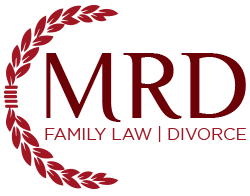DIVORCE LAWS
Orlando, Florida Divorce Laws & Understanding Your Rights
Effective Legal Guidance to Help you Navigate Divorce
Each state has its own specific divorce laws, which are based in statutes and case laws that protect your rights. Acquiring a basic understanding of a few key Florida divorce laws can enable you to work with your lawyer and make informed decisions about your divorce. Michael R. De Canio, P.A., we work closely with clients by explaining how relevant laws apply to their case and offering them trusted legal guidance.
Residency Laws for Florida Divorce
Each state has its own specific divorce laws, which are based in statutes and case laws that protect your rights. Acquiring a basic understanding of a few key Florida divorce laws can enable you to work with your lawyer and make informed decisions about your divorce. Michael R. De Canio, P.A., we work closely with clients by explaining how relevant laws apply to their case and offering them trusted legal guidance.
Laws that Establish Divorce Grounds
There are two grounds for divorce in Florida:
Irretrievable breakdown means the the couple cannot reconcile their differences despite counseling or other attempts to re-establish their relationship. When one spouse argues that the marriage is not irretrievably broken because no substantial attempts have been made to reconcile, the judge may order mediation or counseling to see whether the marriage can be saved. However, when domestic violence is a factor, judges do not have the legal authority to order mediation if it jeopardizes a spouse’s safety.
Mental incapacity means that a judge has declared one spouse to be mentally incapable for at least three years prior to filing for divorce.
Laws regarding mediation and resolution of contested issues
Based on Florida law, when you or your spouse contest parental issues ― such as child support, the primary residence or visitation ― the judge may order both spouses to mediation in an attempt to settle your differences outside of court. When you reach a settlement agreement, the mediator prepares a written consent order that expresses the agreement reached, submits it to your attorneys for review and your attorneys then submit it to the court for approval. A court- approved consent order has the same authority for enforcement as a court order based on a judge’s ruling.
Property Distribution and Alimony Laws in Florida
Certain Florida divorce laws apply to property distribution and alimony. Florida statutes require property division based on equitable distribution, which does not divide property 50/50 like community property states do, but divides it according to what the court deems as fair. Judges base their property distribution decisions on a number of factors listed in Florida statutes, such as spouses’ contributions to the marriage, marriage duration and economic circumstances, to name a few.
Florida statutes also allow courts to award different types of alimony based on similar factors as the ones used in equitable distribution. Examples of criteria the court evaluates for alimony include whether adultery contributed to the marriage breakdown, a spouse’s inability to work or lack of income sources.
Contact an Experienced Divorce Lawyer in Orland, FL
The law offices of Michael R. De Canio can help you address all issues involving Florida divorce laws. Contact the office today for a consultation.

CONTACT A SKILLED DIVORCE ATTORNEY IN ORLANDO
If you need help resolving a family law dispute while protecting your family's physical, financial and emotional well-being, contact the Law Office of Michael R. De Canio today for an initial consultation.

